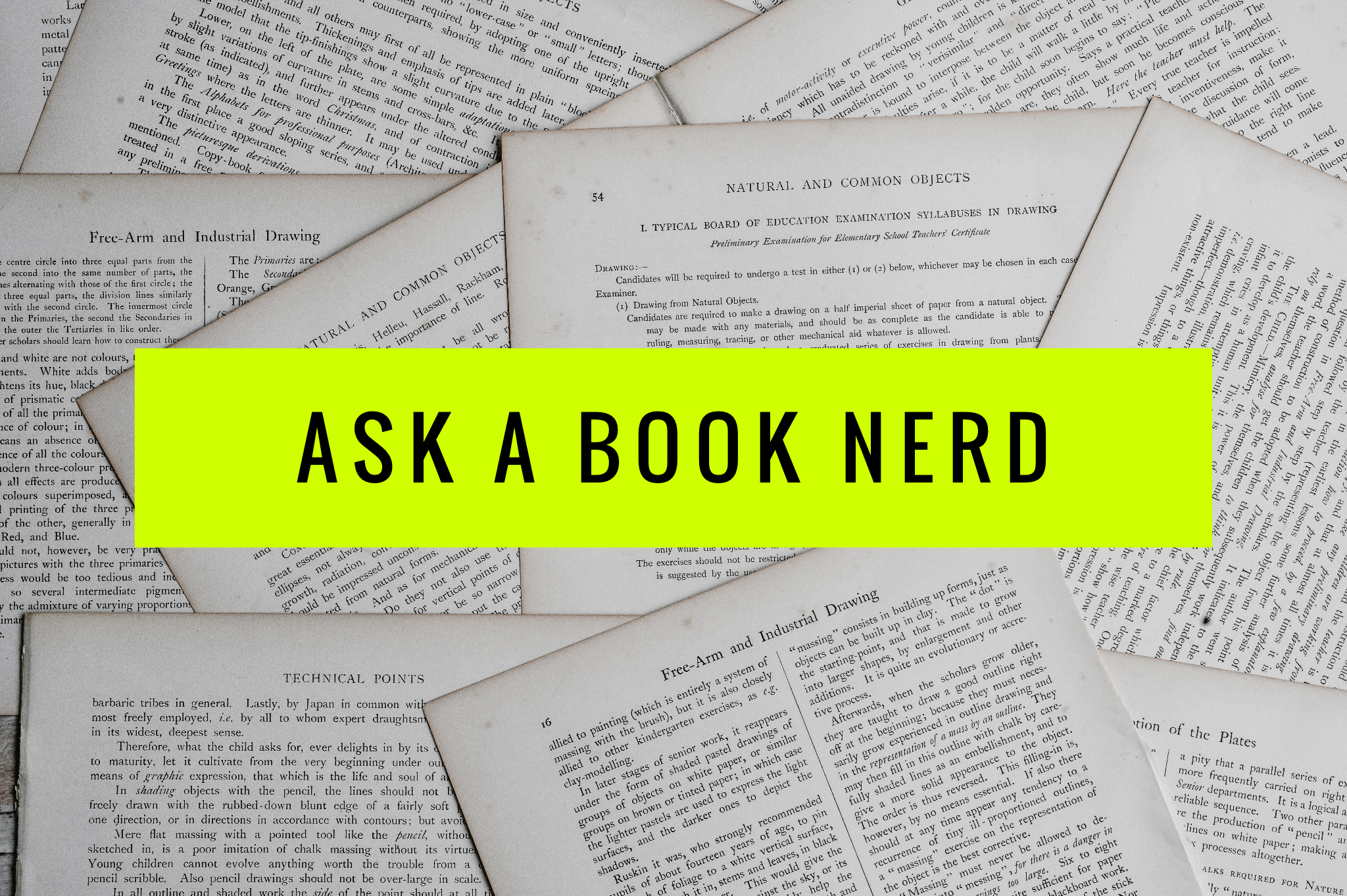Stop Teaching Literature Like It's Some Big Scooby-Doo Mystery
[image description: Brooding, dim, moody lighting. A wooden desk with an open book, a candle in a lantern, and a green vase.]
It may be hard to believe, but I didn’t love my literature classes in school before college. I knew I liked to read, but so many times the way literature was taught––like we were dissecting a frog; and that if biology is the study of animate objects then English was the study of inanimate objects––just didn’t resonate with me.
At the time, I couldn’t articulate what exactly didn’t resonate with me because it was the only way I’d ever been taught literature and therefore didn’t know any different, but my feelings on it are epitomized in this anecdote that I randomly remembered the other day (thus sparking this post).
I believe the book was The Heart is a Lonely Hunter by Carson McCullers, though I’m not 100% sure. Either way, I was talking to one of my English teachers in high school about the opening scene of the novel in question. In it, the omniscient POV narrator told us that our protagonist was at a bar at 6am and this scene sets the stage for the novel.
I read the scene and took it at face value. Okay, someone’s up early and wants a drink at a bar. Cool. Moving on. Keep in mind that at the time I read this, I was in high school and therefore was not legally allowed to drink, thus I’d never been at a bar. I hadn’t even had my first illegal drink at that point. To say that I was ignorant in the ways of drinking and bar culture would be an understatement.
But as my English teacher explained to the class, “Think about this. No one is going to go to a bar at 6am. If they’re at the bar that early in the morning, it means they’ve been there all night. This character is probably drunk, slurring his words, falling off his barstool. Consider that as you’re reading the dialogue. Does this character sound like he’s all there? This is the author trying to tell you things about the characters without explicitly saying it.”
As I heard this, several thoughts went through my mind. First, I felt stupid. How could I have missed this detail? Okay, so I had no context for this given my limited life experience, but still. Second, why couldn’t the author just explicitly say the guy was drunk? Would it have really ruined the story or lessened its literary merit if she’d just said the guy had been drinking all night? Third, if I lack so much life experience that I have to have the basics of daily life in a novel explained to me, what’s the point of reading them? If I had read this novel on my own for pleasure outside of the classroom, would I have even understood it or been able to make sense of it?
In a word, I felt hopeless. I started to question what the point of reading even was. I was so hopeless in fact that I put the novel down and stopped reading it. So I have no idea if understanding that opening scene as in-depth as my teacher indicated that I needed to would’ve had any longterm effect on my understanding and enjoying the novel as a whole.
I don’t want to vilify my teacher because I think she was just teaching in the way she was taught to do; the way literature is so often taught. Like authors sprinkle all these clues and hidden meanings throughout their works and it’s our job as readers to ferret out the hints and put the pieces together to get to what the author “really wants to say.” Like it’s all some big Scooby-Doo mystery.
I also understand now, as a creative writer myself, that sprinkling “clues” throughout the text just isn’t how the writing process happens (unless you’re an actual, literal mystery writer). My goal, first and foremost, is just to tell a good story, and it’s hard to do that if you’re confusing your reader. If someone ever read something and peppered me with questions like “what are you really saying here?” and “is this what you’re really saying?” I’d tell them that I’m a professional writer and being able to communicate clearly is what keeps my bills paid, so what I really mean is what I said, right there on the page. It’s not any more complicated than that.
I also know I’m not the only author who feels this way. Robert Frost was notorious for telling people he meant just what he said in the poem when people would try to dissect them. He was reported to have once shouted as a professor who repeatedly badgered him at a reading, “It was cold and getting late and I ought to have been getting home! That’s all it means!”
Though I wasn’t able to articulate it in high school, I don’t think teaching literature in this way is at all helpful or encouraging. Or rather, it might encourage reading for the wrong reasons. It might lead people to believe that the more vague something is written, the more intelligent or “literary” it sounds. It might turn off those who just want to enjoy a book. It might, as it almost did for me, make me think I’m too stupid to be reading whatever book it is and therefore shouldn’t bother. I can’t help but wonder how many other people out there might become lifelong readers, even book bloggers who read 100+ books a year like myself, if they’d simply been taught literature in a different, better way?
What if, instead, we were taught to enjoy literature for its artistic value, to consider the point in history in which it was written, to consider how the identity of the author and the politics of their environment influenced their thinking. Perhaps some Scooby-Doo mystery-style literature classes include these questions too. I hope they do. How much more airtime would these matters (matters of more import than making assumptions about what an author means but didn’t say) if we did away with the hunting for clues element altogether?
Because literature isn’t like a Scooby-Doo mystery at all. There’s no villain to be unmasked, yet when authors are treated like they’re expected to be hiding things from you, it paints them in an unnecessary antagonistic light. No one likes someone who hides things to make others feel stupid. So it’s silly to me that English teachers seem intent on perpetuating this sham when it’s not actually how authors work.
Authors make countless intentional decisions in their writing and I find it far more interesting to consider those, as they’ve been written than to attempt to extrapolate and assume on what’s not there.
If literature wants to draw inspiration from science, it should not to dissect books like we dissect frogs. It should be to study horses, not unicorns.






